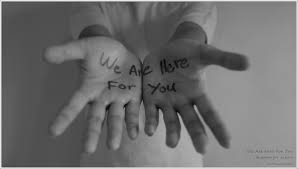During this past month, I have had the privilege of facilitating Religious Exploration sessions with adults and teens at the Unitarian Universalist Congregation of Gwinnett. Our topic was “Being Present to Those in Loss.” I did not go to teach these groups  anything, but to observe, listen and learn from their own experiences. They have had powerful experiences, and these experiences themselves do teach. Here’s what I learned from them.
anything, but to observe, listen and learn from their own experiences. They have had powerful experiences, and these experiences themselves do teach. Here’s what I learned from them.
What does not help
1. Trying to explain to someone what his/her loss means. Often, adults and teens reported that this came as religious statements and cliches that were either worn out or even offensive. However we might insert “God” into a grieving person’s loss, we essentially make it impossible for them to feel their own feelings and have their own experience. If we have religious thoughts and ideas about someone else’s loss, we should probably keep them to ourselves.
2. Minimizing another person’s loss. I was surprised at how often individuals reported that in their own experiences of loss, others tried to make the loss seem as if it didn’t matter or that one could “get over it” quickly. We can experience loss around another being in our lives, a thing or even an idea that is suddenly taken away. To minimize a person’s loss is only to deepen the trauma.
3. Advice. It should probably be added here that all of these not helpful attempts are most often done by people whose intentions are at least not bad. They want to help, and those most intending to help are inclined to give advice. In general, advice is not helpful to those experiencing loss until they specifically ask for it.
What does help
1. A hug. I offer this first because both the adults and teenagers agreed that actions much more than words helped them while they were in the midst of loss. If the one we are being present to is open to a hug, a hug will help.
2. Asking a question that invites the person to talk and tell stories–if they wish. When we ask a genuine question, we are practicing the spiritual discipline of inquiry, and in the midst of loss, a question opens the door for the grieving one to tell stories. Story telling is powerfully healing.
3. Listening. If storytelling is powerfully healing, then giving the person in loss one’s ear and one’s heart is a beautiful gift.
4. Sharing stories. As one listens deeply to a person telling a story, one may find one’s own story arising. It might be worth sharing. The caveat here is to make sure that what we enter into is story sharing and not lapse into trying to explain the other person’s grief, minimize their loss, or give advice. See above.
5. Really seeing the person in loss. A young person reported a classmate–not even really a friend–who walked up and said: “you look sad.” There ensued a period of sitting, listening, story telling and tears. That day, in that moment, that classmate was able to really see the other who was in loss. Really seeing opened the door.
Sometimes we worry that we won’t know “the right thing to say” when we are around those in loss. The gathered wisdom of our community is that there is no such thing as “the right thing to say.” We can be present. We can really see the person in loss. We can reach out. We can ask questions. We can listen. We can share in story telling. We really can be supportive and compassionate when loss appears in our community.
Bob Patrick

One Response to How to Be Present With Those in Loss